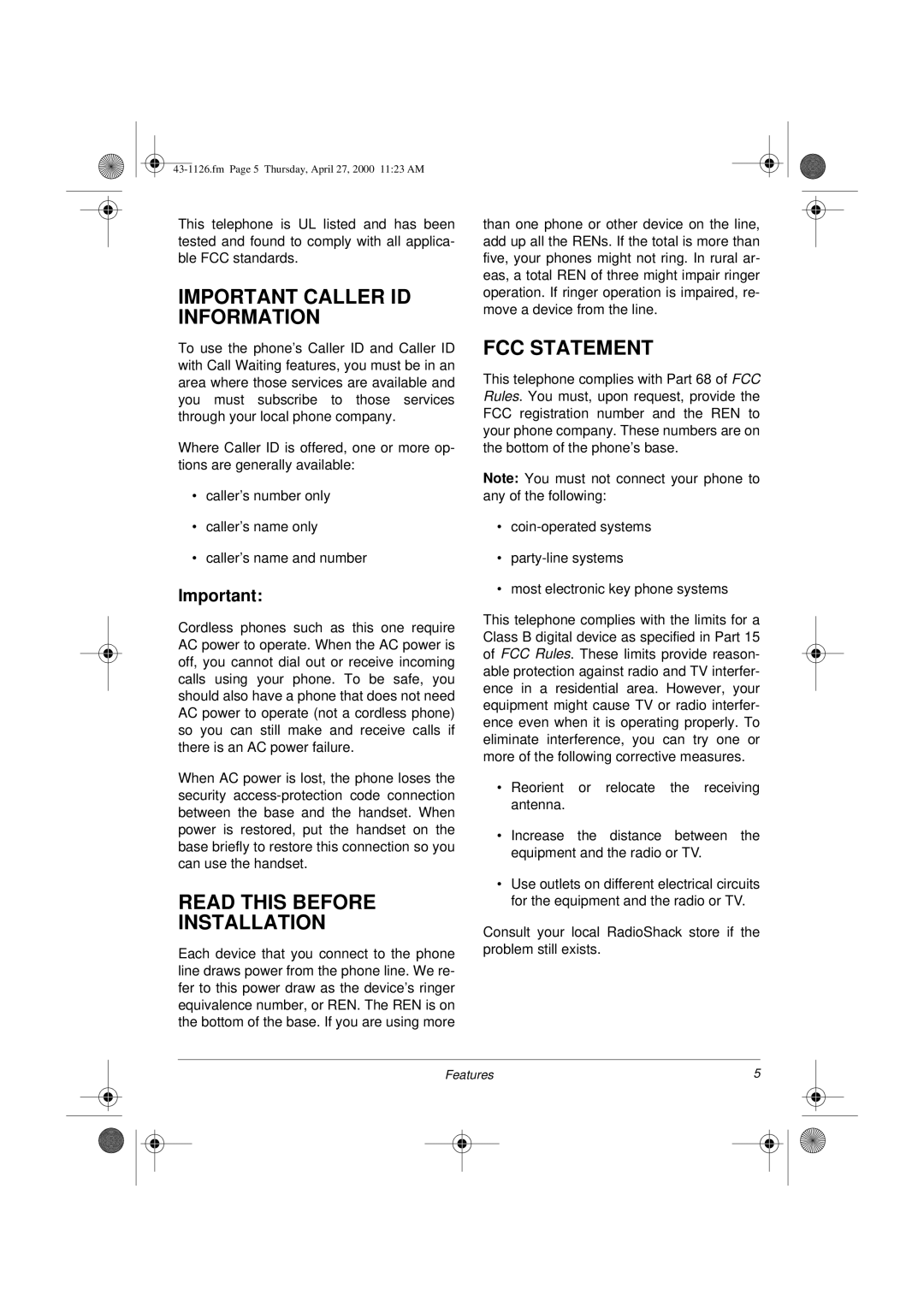
This telephone is UL listed and has been tested and found to comply with all applica- ble FCC standards.
IMPORTANT CALLER ID INFORMATION
To use the phone’s Caller ID and Caller ID with Call Waiting features, you must be in an area where those services are available and you must subscribe to those services through your local phone company.
Where Caller ID is offered, one or more op- tions are generally available:
•caller’s number only
•caller’s name only
•caller’s name and number
Important:
Cordless phones such as this one require AC power to operate. When the AC power is off, you cannot dial out or receive incoming calls using your phone. To be safe, you should also have a phone that does not need AC power to operate (not a cordless phone) so you can still make and receive calls if there is an AC power failure.
When AC power is lost, the phone loses the security
READ THIS BEFORE
INSTALLATION
Each device that you connect to the phone line draws power from the phone line. We re- fer to this power draw as the device’s ringer equivalence number, or REN. The REN is on the bottom of the base. If you are using more
than one phone or other device on the line, add up all the RENs. If the total is more than five, your phones might not ring. In rural ar- eas, a total REN of three might impair ringer operation. If ringer operation is impaired, re- move a device from the line.
FCC STATEMENT
This telephone complies with Part 68 of FCC Rules. You must, upon request, provide the FCC registration number and the REN to your phone company. These numbers are on the bottom of the phone’s base.
Note: You must not connect your phone to any of the following:
•
•
•most electronic key phone systems
This telephone complies with the limits for a Class B digital device as specified in Part 15 of FCC Rules. These limits provide reason- able protection against radio and TV interfer- ence in a residential area. However, your equipment might cause TV or radio interfer- ence even when it is operating properly. To eliminate interference, you can try one or more of the following corrective measures.
•Reorient or relocate the receiving antenna.
•Increase the distance between the equipment and the radio or TV.
•Use outlets on different electrical circuits for the equipment and the radio or TV.
Consult your local RadioShack store if the problem still exists.
Features | 5 |
| ||
|
|
|
|
|
|
|
|
|
|
|
|
|
|
|
